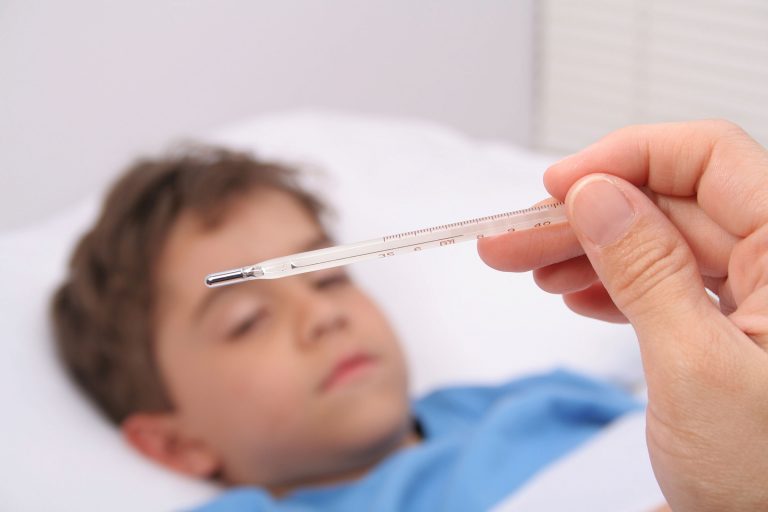
There’s no heat wave quite like the one that accompanies a fever in your little one. This kind of fever is possibly worse than the kind you’ve ever contracted; for it has a way of weakening your baby’s little body and your mighty spirit, all at once. Your early years of parenthood are bound to be stippled with insecurities at the onset of anything that remotely resembles an illness or infection in your child. As you ride the timeline to seasoned parenthood, you’ll learn to deal with the good and the bad equally well.
Here, meet Fever.
A fever can be a cause for concern, but with reasonable measures, it may not have a lasting impact on your baby. If your baby exhibits otherwise normal parameters, you may not have anything to worry about. A fever is usually a sign that your baby’s body is working to fight off an infection. Now, that’s a good thing.
When to Call a Doctor
Sometimes, there may be more to a fever than meets the eye. If you spot any of the following symptoms in your infant, dial your doctor right away:
Less Than 3 Months Old
Between 3 and 6 Months Old
Older Than 6 Months
Older Than 1 Year
Must read- What Are the Most Common Paediatric Respiratory Diseases?
Any Age Range
Effective measures to alleviate fever in children are often age-specific. Here’s a breakdown of steps you can take before and after your child crosses the four-month threshold.
Less Than 4 Months Old
You are likely to get the most accurate temperature reading if you gauge your child’s temperature rectally, but this method is not recommended as there are high chances of causing rectal injuries. The safest route is to insert a regular thermometer under your child’s armpit for 2 minutes.
A temperature higher than 100.4° F should be a warning sign that something’s not right. Get in touch with your paediatrician right away in Gurgaon. You could also lightly sponge your baby’s body with lukewarm water to reign in the fever. If your doctor senses that your child needs immediate intervention, you may be asked to visit your clinic or hospital. On doing so, your baby may be prescribed a treatment course.
Older Than 4 Months

You can measure your baby’s temperature in the mouth or armpit. Either way, a temperature north of 100.4° F indicates fever.
Even if your baby has a fever, you may not need to seek medical counsel if the temperature is within a reasonable band.
1. Less Than 102° F:
If your baby’s temperature is 102° F or less, you don’t need to take the treatment route unless your child is uneasy or out of sorts. Ensure that your baby consumes abundant fluids and gets plenty of rest during this time.
2. Between 102° F and 105° F:
If you record a temperature within the 102° F and 105° F band, consult your paediatrician, pronto. As with younger children, sponging with lukewarm water may draw out the temperature. When it comes to medication, it’s never a good idea to conjure up a home remedy without asking your paediatrician first.
Also, stay away from aspirin; this can trigger the onset of dangerous brain conditions in infants. For instant relief, you can safely administer a dose of paracetamol as advised earlier by your paediatrician. Then, get in touch with your pediatrician for further counsel. If risks are detected, you may be invited in for a consultation.
It is important that you let a fever taper off organically before you resume your child’s ordinary daily routine. Also, hold your child back from attending preschool for at least 24 hours after a fever bids farewell. If a fever extends beyond 48 hours or escalates, call your paediatrician to determine a way forward.
As you journey through parenthood, Fever will benignly make its presence felt, like an old friend not to be forgotten. By learning to heal the heat, you can embrace it in all its glory now and in the years to come.
Know more- Common Cold In Children.
Want to consult the Best Pediatricians in India? Please find the links below.